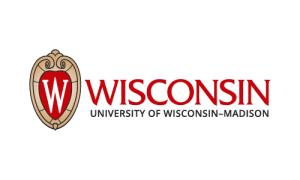University of Wisconsin-Madison: WARF announces annual grant for university research
The Wisconsin Alumni Research Foundation today announced its annual support to the University of Wisconsin-Madison research enterprise for the academic year ending in 2023. The amount totals $130.0 million across all grant categories and programs.
Continuing a tradition that dates to the 1930s, the WARF Board of Trustees once again approved a base grant in response to a formal request from UW-Madison’s Office of Research and Graduate Education (OVCRGE). The base grant, supporting research during the current fall and upcoming spring and summer semesters, is $66.1 million, a 4% increase over the same amount last year.
A Guide to WARF Support for UW-Madison FY23
Click to view larger image.
In addition, WARF announced supplemental grants to UW-Madison valued at $21.7 million plus another $36.2 million provided to the university in the form of operational and functional support. A grant of $6 million to the Morgridge Institute for Research rounds out the $130.0 million total.
“Announcing our annual grant is the highlight of our year,” says WARF CEO Erik Iverson. “Our mission is to enable UW-Madison research to solve the world’s problems, and nothing serves that historic mission more fully than supporting outstanding researchers all across campus.”
“On behalf of the WARF trustees, we are happy to continue the decades-long relationship between WARF and our alma mater,” says Dr. James Berbee, chair of the WARF Board of Trustees. “We look forward to seeing the breakthroughs that UW-Madison research will produce in the years to come.”
As it has in past years, WARF’s base grant covers a broad range of research-related programs, including $13.5 million for faculty recruitment and retention, $2.5 million for faculty fellowships and $12 million for graduate student support.
“WARF’s continuing investment gives our university an edge in research and innovation that reaches every part of our campus, and by extension our state,” Chancellor Jennifer Mnookin says. “This critical support allows the flexibility to focus on exciting and rewarding new priorities while helping us maintain our world-class faculty and provide students exceptional opportunities to learn and grow.”
The Fall Research Competition, which draws hundreds of research proposals from as many as 120 different academic departments each year, will receive $11.4 million from WARF. Another $11 million has been allocated to strategic initiatives, including Research Forward, which advances transformative projects on campus. Grant matches for instrumentation, facilities, doctoral training and research programs total $6 million. And $1.5 million covers leadership, personnel, policy and implementation support.
“The special initiatives that we are able to offer because of WARF’s continuing support are instrumental to research success at UW-Madison,” says Steve Ackerman, vice chancellor for research and graduate education. “These initiatives, from the Fall Research Competition to Research Forward, generate innovative projects to address complex problems. They also support graduate students, postdocs, research staff and faculty, and allow our researchers to develop highly competitive proposals for extramural grant support. We truly are grateful for WARF’s partnership and support and look forward to the promising projects that this annual grant will help make possible.”
$8.2 million is committed to the university’s Cluster Hiring Initiative and several other targeted research programs.
WARF’s $6 million of annual support for the Morgridge Institute for Research recognizes the private, nonprofit institute’s ongoing mission to improve human health through interdisciplinary biomedical research. Like WARF, the Morgridge Institute is a supporting organization affiliated with UW-Madison.
“WARF’s support of the Morgridge Institute is vital to our goal of being an additional ‘arrow in the quiver’ for advancing Wisconsin biomedical research,” says Morgridge CEO Brad Schwartz. “WARF funding has enabled Morgridge to help speed the development of select emerging research priorities at UW-Madison—everything from metabolism to advanced imaging to research computing. Our flexible and nimble structure allows us to quickly respond to new opportunities, which helps UW-Madison’s competitive edge.”
WARF’s annual grant continues a tradition of investing in UW-Madison that dates back almost a century. While most universities bear the cost of technology commercialization and asset management through their own budget, the foundation’s mission-driven operational and functional support has provided those services to UW-Madison since 1925. This unique model stands alone in American higher education.

